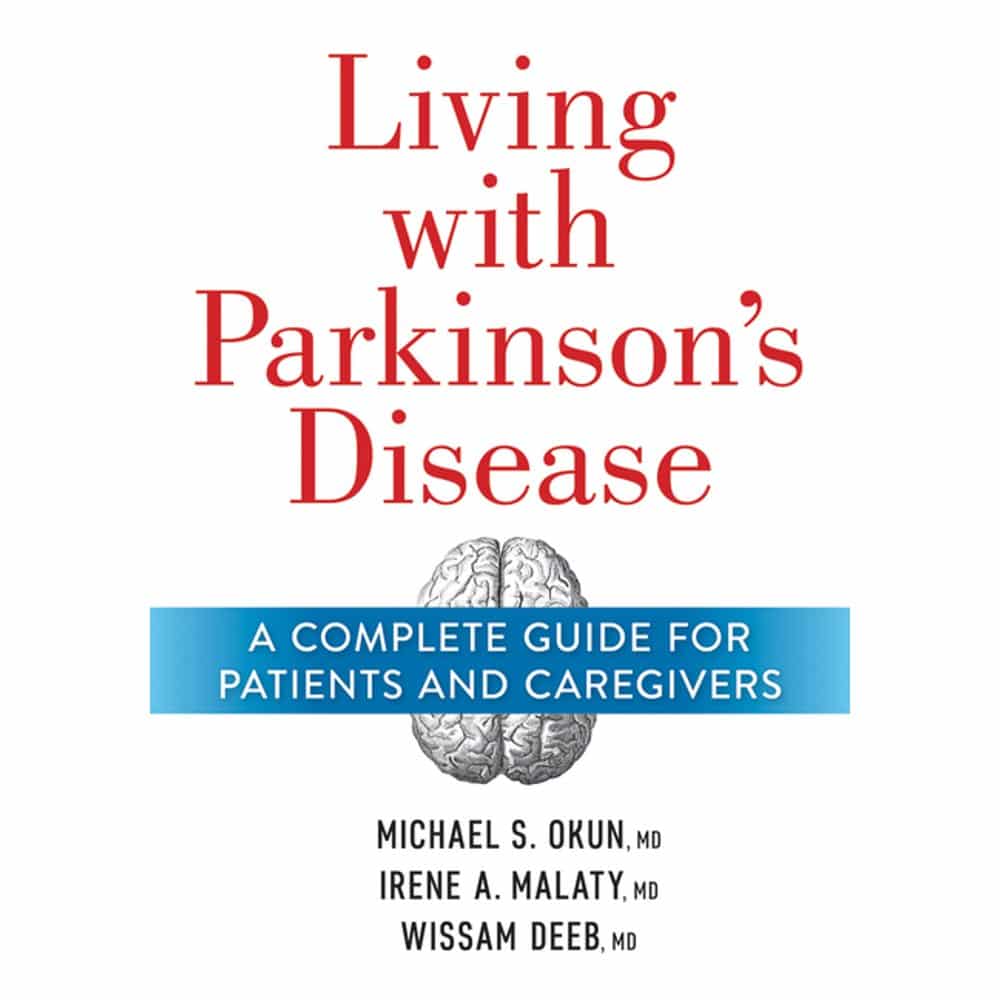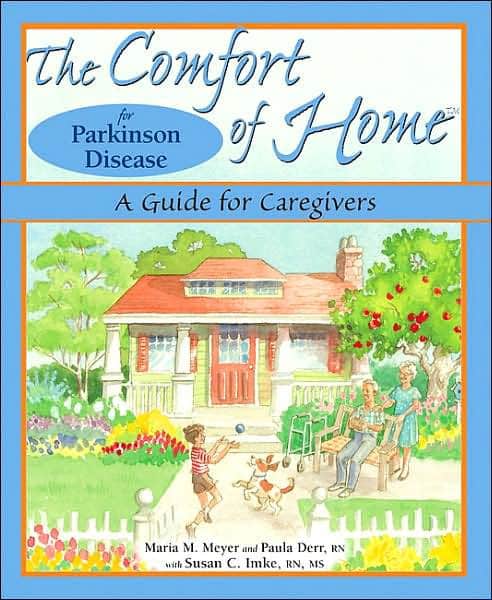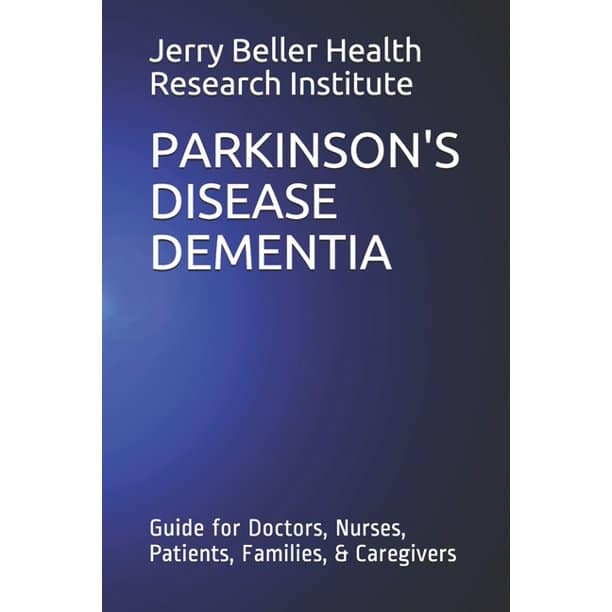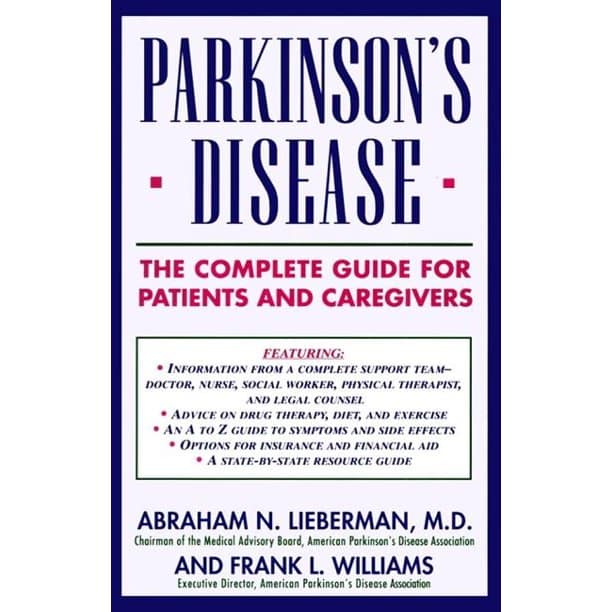Challenges Seniors And Caregivers Are Likely To Face
People with Parkinsons Disease may find it difficult to communicate their problems. The person may have different symptoms each day. Sometimes they will be able to do their work normally, and sometimes they need to depend on others. This is a part of Parkinsons Disease.
The caregiver may feel that the person is being manipulative or demanding unnecessarily. The caregiver needs to know well about the disease and keep in mind that the disease is very unpredictable. The disease may worsen over time. Consulting the doctor and taking medication will ease some symptoms but not stop the progression.
Depression is also a part of the disease, and getting the treatment on time will help your loved ones cope with the problems early.
Every Victory Countsfor Care Partners
This 112-page manual offers three sections of inspiration and information for Parkinson’s care partners, including what it means to be a Parkinson’s care partner, the care partner role following a PD diagnosis, and managing the complications of PD. Appendix includes tips on home safety, self-care, and communication with .
Making Your Home Safe
As Parkinson’s progresses, a person with the condition experiences more mobility issues. They’ll need more assistance going about their day-to-day lives. Getting around their home safely might also become a little more challenging.
Here are a couple of things you can do to make your home safer for a person with Parkinson’s disease:
- Keep the floors clear: Any things that can easily be tripped over on the floors of your home, like electrical cords, should be kept away. Keep the usual path they take through the house as clear as possible.
- Install ramps when needed: At the later stages of Parkinson’s, a person’s mobility might become so restricted that they need a wheelchair. It’s essential to make your home wheelchair-friendly and accessible if this happens.
- Make your bathroom safer: Install grab bars around the tub and anti-slip mats in them if you have a bathtub. Also, keep personal hygiene products within easy reach to prevent them from slipping or falling over trying to reach for them.
Don’t Miss: Voice Amplification Devices For Parkinson’s
Simplify Activities Of Daily Life For A Parkinsons Patient
Many of the activities of daily life which we take for granted cause immense difficulty for a Parkinsons patient. So, simplifying their daily chores will be an important task. Fortunately, you can take care of your loved one and maintain their quality of life at home with adaptations like:
1- Personal care tips
- Use assistive devices and caregiving techniques for example, have them use an electric toothbrush and water flosser.
- Their grooming must be done by the caregiver.
2- Getting Dressed With Parkinsons
- Do not make haste in dressing plan and spare longer time for getting dressed.
- Go for loose clothes that can be put in or taken off more easily and comfortably.
- Replace zippers or buttons on their clothes with velcro or magnetic fasteners.
3- Eating with Parkinsons
- Utensils that are specially designed for Parkinsons patients have padded or built-up handles and can be better used to facilitate their eating process.
- Weighted utensils and cups are more beneficial for those who find it difficult to control their motor skills.
Also Check: Tai Chi And Parkinsons
Connect To Care Zindagi

Our caretakers realise how difficult it can be for our client to cope with the severe challenges of Primary Motor Symptoms. We provide the best Parkinsons Disease Treatment at Home in East Singhbhum. If you are looking to procure our solutions. Count on Care zindagi.
Any physical entity, such as apparatus, hardware, software, physical device, or substance, that assists humans in dealing with medical situations is referred to as a medical device.
The World Health Organization has provided a wide definition that focuses on its goal:
Any instrument, apparatus, machine, or appliance for in vitro usage, as well as any hardware, software, material, or other associated object, or any combination of them, is referred to as a medical device.
Home care agencies that are Medicare-approved
Also Check: How Long Do Parkinsons Patients Live After Diagnosis
Don’t Miss: How Old Does Parkinson’s Start
Develop A Support Group
Caring for a loved one can be deeply satisfying. Its a chance for your family to draw together as you face the challenges of Parkinsons disease head-on.
However, providing emotional and physical care for someone with an illness can become stressful and, at times, overwhelming. Balancing your personal life with caregiving can be difficult. Many caregivers will face periods of feeling guilty, angry, and abandoned.
Of course, you dont have to experience this alone. Support from other family members or professionals can help:
- reevaluate approaches to treatment
- offer new perspective on the caregiving relationship
Ask your doctor or your local hospitals health outreach office for contact information for a Parkinsons disease caregiving group. The person youre caring for will likely also benefit from being part of a support group.
Support groups allow for open communication with other people facing the same struggles. These groups also provide an opportunity to share suggestions, ideas, and tips among the group members.
Diet For Parkinsons Disease
Drink six glasses of water daily to help medications break down more efficiently.
Fiber-rich foods will help deter constipation.
Limit sugar, alcohol, and caffeine in the evening to help eliminate sleep problems.
Ensure adequate vitamin D to help with bone health.
Include nuts like walnuts and cashews to promote brain health.
Incorporate berries like blueberries and strawberries for their antioxidant properties.
Eating foods like salmon, tuna, and dark leafy vegetables contain anti-inflammatory properties for our brains.Source: Parkinsons Foundation
Dont Miss: How Long Parkinson Patients Live
Also Check: Does Alan Alda Have Parkinson’s Disease
Take Care Of Yourself
Probably one of the most important, and sometimes difficult, things caregivers can do is to take care of themselves. This includes maintaining mental and physical health by making and keeping your own medical and dental appointments. As a caregiver, it is important to keep your job whenever possible as it provides not only financial help and possibly insurance coverage, but also a sense of self-esteem. Join a support group for caregivers if possible. Support groups help you meet people who are going through what you are going though, vent frustrations, give and receive mutual support, and exchange resource information and coping strategies. Whenever possible get your sleep, take breaks, make and keep social activities, and try to keep your sense of humor.
Everything You Need To Know About Caregiving For Parkinson’s Disease
APA Citation, 7th Edition
Lianna Marie., & Lianna Marie|AUTHOR. . Everything You Need to Know About Caregiving for Parkinson’s Disease.Purdue University Press.
Chicago / Turabian – Author Date Citation, 17th Edition
Lianna Marie and Lianna Marie|AUTHOR. 2020. Everything You Need to Know About Caregiving for Parkinson’s Disease.Purdue University Press.
Chicago / Turabian – Humanities Citation, 17th Edition
Lianna Marie and Lianna Marie|AUTHOR. Everything You Need to Know About Caregiving for Parkinson’s Disease Purdue University Press, 2020.
You May Like: Can Diabetes Cause Parkinson’s Disease
Daily Exercise And Physical Activity
Doing regular exercise is one form of medication. It will help a person benefit from the symptoms such as tremors, stiff muscles, constipation, and mobility issues. It will further improve the balance and flexibility of a person.
They can even do light-based home activities like gardening, laundry, cycling, and yoga. Playing some games like tennis also helps a person be active and flexible.
In the early stages of Parkinsons Disease, it is advised to go out to gyms and fitness studios and be socially active. People with mild problems can have some therapy sessions and get the right therapy for their issues.
However, it is important to keep an eye on people with Parkinsons Disease as they will risk losing balance or falling.
Q: Can Someone With Parkinsons Get Long Term Care Insurance
After being diagnosed with Parkinsons disease, its extremely difficult for the patient to obtain long term care insurance. Most applications are denied by the insurer, and those that are approved will require a hefty premium.
In such cases, its often better for the caregiver to apply for long term care insurance instead. For more information about long term care insurance policies for Parkinsons patients and caregivers, read this helpful article from the Parkinsons Foundation.
Also Check: Does Caffeine Affect Parkinson’s Disease
What Does This Mean For Me
It is possible to live well with PD despite the physical and/or cognitive changes that come with the disease progression. PD is often considered a family disease because of the effect it may have on the persons family and friends. Being a Caregiver is an important role and most often performed by the spouse, or an adult child. In the early and middle stages of the disease, the role is often described as a partnership. The care partner and the person with PD have a dynamic relationship as both adjust to sharing duties and working together. In the later stages of the disease, caring for someone with PD may become physically and emotionally draining. It is important for Caregivers to remember that it is okay to ask for help, and to acknowledge that one person cannot do it alone. Caregivers often feel empowered and supported by staying engaged in social activities, building a strong backup team, and attending support groups.
Talk With Others Who Understand

MyParkinsonsTeam is the social network for people with Parkinsons disease and their loved ones. On MyParkinsonsTeam, more than 90,000 members come together to ask questions, give advice, and share their stories with others who understand life with Parkinsons disease.
Are you caring for someone with Parkinsons disease? Share your experience in the comments below, or start a conversation by posting on your Activities page.
Recommended Reading: How Is Parkinson’s Disease
Does Someone You Love Have Parkinsons Disease
And you need help with knowing what to do, where to start or how to care for them? Are you searching for a high quality Parkinsons home caregiver, and dont know where to begin?
Youre not alone. Thousands of families a month face the same challenges, and are searching for help and support they can trust and the numbers are growing every day.
Fairfield Family Care would like to help you with choosing a quality Parkinsons home caregiver and information about caring for the disease.
Does Medicare Cover Focused Ultrasound For Parkinsons Disease
There is no mention of focused ultrasound for parkinsons disease in the medicare coverage documents. This means that medicare does not cover this treatment.
MRI-guided focused ultrasound is an option for treating patients at Penn Medicine. This medication is intended to reduce dyskinesia in Parkinsons disease patients. Dr. Casey H. Halpern, the departments chief of Stereotactic and Functional Neurosurgery, is a physician at The University of Pennsylvania. By focusing ultrasound on a specific region, it can induce an ablation in the same area that causes tremor and Parkinsons symptoms. Ultrasonic waves are used in the treatment of the brain to generate a distinct thermal lesions without causing damage to surrounding structures. Because we can safely and effectively perform this procedure, we can perform work on extremely delicate areas.
You May Like: Is Tardive Dyskinesia A Symptom Of Parkinson’s
Top 10 Ways A Care Partner Can Support Someone With Parkinsons Disease
In this 1-hour webinar Yazmil Soriano, Care Advisor with the Parkinson’s nonprofit, Neuro Challenge, offers tips for caring for a person with Parkinsons disease . Although the ten “ways” are very high level concepts such as communication and journaling, many specific tips are shared as part of the ten concepts.
Parkinsons Disease In The Elderly
The biggest risk factor for Parkinsons is age. It affects 1% of people above the age of 60. People suffering from this disease may find it difficult to walk and balance, and they may suffer from shaking hands or stiff muscles. There will be some mental and behavioral changes in them.
This disease affects multiple parts of the body and brain. It starts slowly and gets worse over time. The cause of this disease is still not known, but it is believed to be due to genetic and environmental factors.
Recommended Reading: How Long Does Parkinson’s Last
Parkinsons Care Partners: Rewriting The Rule Book
This 9-page digital booklet walks you through writing your personal rule book for living well with Parkinsons as a Parkinsons care partner. Having a rule book allows you to, “reset your relationship with your person with Parkinsons define decision making and focus on the well-being of yourself and your person with Parkinsons helps you identify and clarify challenges, wishes and expectations, and help you avoid feelings of anger or guilt that arise out of lack of clarity.
Simplifying Activities Of Daily Living For Parkinsons Patients
Many aspects of daily life that we take for granted become increasingly difficult for someone who is living with Parkinsons. Movement symptoms like weakness, tremor, rigidity, balance problems and bradykinesia become especially pronounced in the middle and later stages of the disease. Medications used to treat PD, such as carbidopa-levodopa, dopamine agonists, MAO B inhibitors and anticholinergics, can also have bothersome side effects like dyskinesia , lightheadedness, drowsiness, hallucinations and confusion that interfere with daily routines. Fortunately, there are assistive devices and adaptations that can help patients maintain their quality of life and make caring for someone with Parkinsons easier for family caregivers.
Also Check: What Can You Do For Parkinsons Disease
You May Like: What Percent Of Population Has Parkinson’s
Parkinsons Foundation Care Partner Program
This series of eight free, self-paced, online courses is recommended for anyone caring for a person living with PD. The aim is to promote awareness, create actionable strategies for self-care, develop clear networks for support, and provide relevant tools to empower Care Partners. Create an account or sign in with LinkedIn, Facebook, or Google. Chrome web browser is required.
Hire Outside Help If You Need It

At some point, you may feel that both you and your support network are stretched thin. Youre tired, and you dont feel comfortable asking friends and family to pick up the slack.
But the yard really needs upkeep. And the house isnt as clean as it should be. And suddenly, it seems, youre totally out of food, as well as the energy to go grocery shopping.
Hiring a gardener, a house cleaner, or a grocery delivery service can help if this is an option for you. Your physical well-being will thank you for it.
Read Also: Can Chiropractic Help Parkinson Disease
Home Care For Clients With Ms
Multiple sclerosis is a chronic, demyelinating disease affecting approximately 400,000 people in the United States alone. MS is a unique and extremely variable disease, often manifesting invisible disabilities and symptoms. In-home caregivers need to know the nuances of MS to provide the care and resources available to this group.
MS is a chronic, demyelinating disease that affects the central nervous system . The progress, severity, degree of disability, and specific symptoms of MS are unpredictable and may vary greatly from one day to another and from one person to another.
When Care Comes To You: Tips For Using Home Health Aides Pts And Ots
In this 1-hour webinar physical therapist Julie Hershberg explains the different roles of each professional as well as questions to ask to ensure you find a person that is a good fit for you and how to harness the power of your health care team including your home health aide, physical therapy and occupational therapist.
You May Like: Are Hallucinations A Symptom Of Parkinson’s Disease
Caring For Someone With Parkinson’s Disease
In this 1-hour teleconference, clinical social worker Elaine Book, addresses some of the challenges unique to PD caregiving, by stage of PD. She also talks about management of caregiving responsibilities and self-care. And there are some good tips about communication.
Sadly, only the first 12 minutes of the teleconference was recorded. Fortunately, staff at the Parkinson’s Community Outreach Program attended and took notes of the entire hour.
Coping With Parkinson’s Disease: A Guide For Caregivers
Parkinson’s Disease is a progressive disorder of the nervous system that affects movement. There is currently no cure for PD, though research is ongoing.
A Disease with Many Faces
Patients with PD and their caregivers face special challenges due to the variable nature of the disease. According to the National Parkinson Foundation, the incidence and severity of the disease can vary from day to day, and even from one time of day to another.
Talking openly and honestly together will help you fulfill your caregiving responsibilities.
This variability can be a source of confusion and frustration for PD patients and their caregivers, and it calls for ample amounts of patience, understanding, and adaptability.
In addition to the ever-changing nature of the disease, here are some other unique challenges facing caregivers for PD patients:
- complicated medical regimens
- underestimation of the severity of symptoms by family and friends
- increasing isolation for patient and caregiver as disease progresses
- difficulty with communication as disease progresses
Help for Caregivers
Tips and Techniques to Aid in Caregiving
In addition to finding a strong support system, there are a number of other things you can do to provide good care for your loved one. Here are a few suggestions:
1) Educate yourself about PD.
2) Be proactive about partnering with medical professionals to aid in treatment.
3) Be a good observer.
4) Handle difficult decisions.
5) Allow your loved one to do what he or she can.
You May Like: Does Michael Bolton Have Parkinson’s

